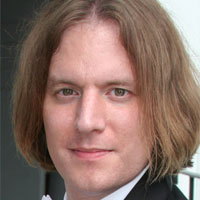Anna Dagmar
Lessons In Living The Creative Life
Music is, by its nature, a form of creative expression. When the first humans discovered the percussive quality of some object countless generations ago, it began an endless quest to combine sounds into something to relate some idea or generate some feeling in the listener. Certain people have these gifts naturally, others learn the craft of making music, and those who make it their career combine both into those special qualities that makes people want to listen to what they have to express.
British-born Anna Dagmar has spent her life partaking in numerous forms of musical education. From listening to the songs and music of her parents and the world around her, to childhood lessons and, eventually, a formal education at the Eastman School of Music in Rochester, New York. She continues to study and hone her craft, while also now teaching music herself, and passing on her talents and love of creating and composing to a new generation.
But having the skills and talent doesn't matter much if one doesn't go out into the world to develop and share them. Now living in Brooklyn, New York, Dagmar has performed around the area for several years, with artists such as Bobby McFerrin and Peter Erskine, and her music has been heard on local radio stations as well as regional showcases and CD compilations.
Her collaborative efforts include the electro-folk trio Green, which was interviewed in Chorus and Verse in May 2003, as well as The ManifestOrchestra, a contemporary chamber ensemble. These diverse projects have given Dagmar the opportunity to branch out and experiment with alternate styles, and complement her own developing solo career.
Having released her debut album, "One More Time in the Air" in 2001, Dagmar has just released her follow-up, "Solo Songs," which was recorded during the winter of 2003 during one of that season's blizzards. The disc, released in March, reveals Dagmar's beautiful voice wrapping itself around her solid songwriting and supported by an elegant and distinctive piano soundtrack. She continues to perform at many of New York City's most-popular venues, such as the Knitting Factory, Cornelia Street Cafe and the Bitter End, to support the CD.
Chorus and Verse interviewed Dagmar shortly after the release of "Solo Songs" to see how the release of the record is shaping her career as she plans for performances in New England and old England later this year.
Let's start with some of your early history. You were born in England and grew up in Massachusetts. Where did you develop your first interest in music, and what were some of your early influences? At what point in your life did music evolve from something you enjoyed into something that you would pursue as your career?
My earliest memories of discovering music were hearing people sing at St. Alban's Cathedral in England. Also, my mother sang to me a lot, she knows thousands of songs, and my father was always listening to opera and classical music in the house. I started piano lessons at the age of seven, and there was an immediate connection for me, both in figuring out tunes by ear and learning how to read music. During high school I started to think seriously about pursuing a career in music.
You earned your degree in Jazz Performance and Music Education at the Eastman School of Music. What was the greatest benefit to being immersed in a musical education, and do you feel that having a formal training gives you advantages over artists who are self-taught?
For me, there were a lot of benefits about attending music school. It was a place where I could focus and be challenged by playing with other creative musicians. I also had time to continue learning classical piano repertoire and jazz standards. It wasn't until my final year at Eastman that I concentrated on writing and performing songs with words. I don't think of my education as giving me an advantage over self-taught people, because I appreciate that everyone is coming from a different background and a training that suits them.
I do know that the education gives me certain skills, which allow me to play a wide range of music. And I also think that studying any art or discipline can expand your palette of expression, and for me that has always been the goal.
Do you find yourself drawing upon what you learned in school for your own composing? Does having structured training make it more difficult to experiment and come up with original ideas or it is advantageous to have such a foundation to build on?
I definitely can draw from the resources I gained in school, but there wasn't a class called "12-Step Method To Compositional Genius!" Composing is such a personal thing that can't be institutionalized. I don't feel limited by the education because I believe that learning opens up a lot of doors and broadens a person's scope. Also, in my view, nothing is 100% original. Whether consciously or not, people draw on what surrounds them and build on a long tradition of music.
In addition to your solo performing, you're part of Green, an electro-folk trio, and a contemporary chamber ensemble called The ManifestOrchestra. How would you say each of these projects allow you to express yourself differently? Do you prefer to have many different creative outlets to pursue, and would you be open to additional opportunities if they were to present themselves.
Green is doing a lot of recording now, and working intensely with computer electronics and vocal processing, so I'm experimenting with new sounds and songwriting. The ManifestOrchestra is a collaborative setting, and there is a theatrical component involved. So, we develop music, storylines, and text, in a way I wouldn't on my own. Also, I will be performing an arrangement I wrote for bass, piano, clarinet, and trumpet at Brooklyn Conservatory this June. I like having a lot of creative outlets, and I'm always interested in new opportunities when they come up.
Talk about some of your ongoing music education. How often do you take voice lessons these days, and do you feel you still have more to learn? Do you have a routine or training regimen you maintain to keep your voice in shape?
I take voice lessons regularly with Theo Bleckmann (www.theobleckmann.com). I should call them music lessons, actually, because we work on fine tuning the interpretation of the songs as well as vocal technique. I use a practice routine to stretch my range and give my voice more clarity and depth. To me, it seems a lot like exercise - the more you do it, the more flexibility and endurance you have. Then, you can apply that directly to the songs.
In addition to your performing career, you also teach. What are some of your philosophies that you feel make you a good music teacher? Do you have any opinions about the earliest age that children should be introduced to music, and the best course someone should take if they want to pursue a career in music?
I teach private piano and songwriting lessons, and accompany baby music classes. Yes, "baby" music classes are for babies! It's never too early to introduce children to music, but at first their involvement is mostly movement based. Verbal understanding usually surfaces around the age of two or three. And, personally, I prefer to wait until at least the age of five to offer piano instruction.
My philosophy with teaching is to accommodate individual learning needs and give a well-rounded basis of reading, listening, composing, and technique. Some of my youngest students are writing their own music, and it's thrilling to hear!
As far as pursuing a music career, there are so many avenues, I couldn't prescribe one way. But the people I see being most successful share a common determination and focus. They have seen or heard performances that inspire them and they want to lead a creative life, no matter what it takes. They also tap into an experience that connects with the audience. The specifics of making choices to form a career grow out of that inner commitment.
The CD booklet for "Solo Songs" states that it was recorded during a blizzard. What were the recording sessions for the album like? Was recording the album in only a couple of days a planned attempt to work quickly or just the way it worked out?
We almost had to cancel the recording session for "Solo Songs" because of the blizzard. In fact, I got snowed-in up in Tappan! But, the storm was beautiful. I could see it through the windows while I was playing. It really added a lot to the atmosphere, and perhaps that comes through in the music. Two days, plus one day of mastering, was a short time to schedule, but I had been rehearsing the material for months ahead. I wanted the record to have a live sounding quality, not to seem as though you were listening to the ninety-ninth take of each song.
You released "Solo Songs" at the Cornelia Street Café in early March. How did that performance go, and what have been the early reactions that you've gotten from friends and fans who have heard the CD?
A lot of my fans have told me they feel the solo setting is the best way to hear my music. They can better understand the lyrics, and they like the emphasis on the piano. Also, the close friends who have listened to me for years have noted the change in my voice since studying with Theo. I am also expecting some album reviews soon - one in All Music Guide (www.allmusic.com) and one in Talent in Motion Magazine (www.timmag.com). Anyone who hears the new album can write their own reviews at www.cdbaby.com/annadagmar2.
Is releasing a new album a nerve-wracking experience for you? Are you excited at the prospect of promoting this album, or is it more of a relief just to have it completed? Do you enjoy being in the studio, or would you prefer to be live on stage?
I was pretty nerve-wracked in February when the release concert was only a week and half away and I still didn't have the discs! But that was due to some last minute graphic edits, actually more stress than preparing the music!
I'm both relieved and excited at this point. I'm finding out a lot about promotion and business. More and more I see what other musicians are doing and I try to learn from them.
I prefer being live on stage to being in the studio because I like the energy of the audience. The studio can feel a little isolated. But it is fun to hear the tracks back and make decisions or come up with new ideas during a recording session.
Later this year, you're going to be returning to the United Kingdom for a performance at the Borderline in London. Will this be something of a homecoming, and is being able to perform in England something special for you?
I can't wait to go back to England, and the concert will be a special event for me. I wonder how the London music scene will strike me. Mostly, I plan to reconnect with family friends, and travel around Europe.
How would you like your career to develop over the next several months? Do you anticipate this CD allowing you to pursue new opportunities? What do you dream about as the ultimate show that you would like to perform?
Over the next few months, I'll be preparing for summer gigs in New England and continuing to perform in New York. I hope the new CD will give me more opportunities to play and meet other artists. Also, I am considering other places for my songs, such as films and radio.
The ultimate show for me would be in an intimate venue with an amazing piano, perhaps in some exotic country. I'd be performing and collaborating on the same stage with other musicians who have really inspired me. I'd totally let go of technical considerations and be completely in the moment.
[ Website: www.annadagmar.com ]

Matt Mrowicki founded Chorus and Verse in 2001. He is a rock star designer and technologist, Internet professional, content creator, and entrepreneur specializing in web development, IT consulting, branding, social media and online marketing. www.imprtech.com









